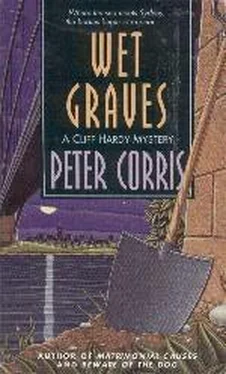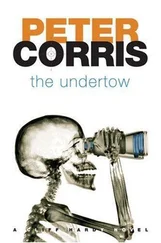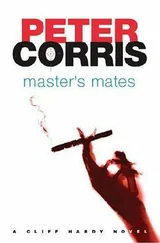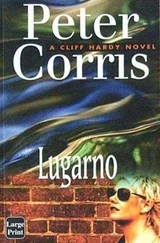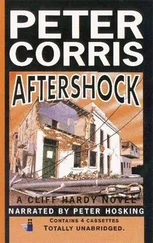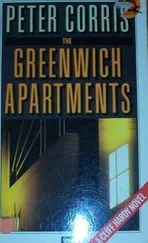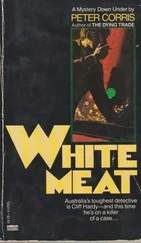Peter Corris - Wet Graves
Здесь есть возможность читать онлайн «Peter Corris - Wet Graves» весь текст электронной книги совершенно бесплатно (целиком полную версию без сокращений). В некоторых случаях можно слушать аудио, скачать через торрент в формате fb2 и присутствует краткое содержание. Жанр: Криминальный детектив, на английском языке. Описание произведения, (предисловие) а так же отзывы посетителей доступны на портале библиотеки ЛибКат.
- Название:Wet Graves
- Автор:
- Жанр:
- Год:неизвестен
- ISBN:нет данных
- Рейтинг книги:5 / 5. Голосов: 1
-
Избранное:Добавить в избранное
- Отзывы:
-
Ваша оценка:
- 100
- 1
- 2
- 3
- 4
- 5
Wet Graves: краткое содержание, описание и аннотация
Предлагаем к чтению аннотацию, описание, краткое содержание или предисловие (зависит от того, что написал сам автор книги «Wet Graves»). Если вы не нашли необходимую информацию о книге — напишите в комментариях, мы постараемся отыскать её.
Wet Graves — читать онлайн бесплатно полную книгу (весь текст) целиком
Ниже представлен текст книги, разбитый по страницам. Система сохранения места последней прочитанной страницы, позволяет с удобством читать онлайн бесплатно книгу «Wet Graves», без необходимости каждый раз заново искать на чём Вы остановились. Поставьте закладку, и сможете в любой момент перейти на страницу, на которой закончили чтение.
Интервал:
Закладка:
As I rechecked the numbering of the houses in the lane and the streets at either end of it, certain impressions and recollections began to come together in my mind. Now that I was out of his presence, I felt some disturbing familiarity about Charles Lithgow that I hadn’t felt when I was with him. It was as if I’d met him before in another context and the re-meeting had blotted this out. I struggled to remember, to place the feeling, and failed. But I started to walk quickly back to Pump Street. Had I been conned? Had it all been too easy? Something else about Lithgow disturbed me. Some irritant, something not quite right. But I couldn’t locate it.
I re-entered number 43A by the back, went through the porch bedroom into the kitchen and almost fell as my feet tangled with something on the floor. I steadied myself by grabbing the doorjamb and looked down. Betty Tracey was lying on the floor. The back of her head was a dark pulpy mess. Her grey hair was stained a dark colour near the crown and was streaked dark red for the rest of its untidy length. I felt for signs of life at her wrist and neck the way I had with Stan Livermore, and got the same result. The little woman’s head was turned around so that she seemed almost to be looking back over her shoulder. She was even more twisted and hunched in death than she had been in life.
I straightened up and moved quickly to the stairs. All quiet topside. I went up and saw that the doors to both Livermore’s and Lithgow’s rooms were open. Old Stan’s room had been gone through, quickly but by someone who knew what was where. Most of the files were missing, along with some of the books and photographs. In Lithgow’s room almost nothing remained apart from the furniture and the wine rack. The papers, books, photographs, tool box and other things I’d remarked were all gone. I pulled out the drawers and opened the cupboards. They were empty but might always have been so. The waste-paper basket, which I now remembered as being crammed with paper, was empty and lying on its side. There was almost nothing of Mr Lithgow remaining, except his soup mug, sherry glasses and wine rack, which contained ten bottles, none of which would sell for less than twenty dollars.
There was no way of sliding out of this one; my fingerprints were in the house, my car had been parked in the street for an hour or more, and I’d been seen at the place previously. Besides, I didn’t want to make an anonymous phone call about Betty Tracey. She might have been an old sharpster, but she deserved more than that. I’d seen a killer and could identify him, although I’d have laid a hundred to one now that his name wasn’t Lithgow or anything like it. I found the house telephone in Mrs Tracey’s dark, musty front room and called the police. While I waited for them to come I did another quick search of Livermore’s and Lithgow’s rooms. Nothing in old Stan’s. In the other room I found a pair of socks that had been left under the bed. Handy if you were a sniffer dog. I gave the blankets a twitch and something dark and soft fell to the floor. The object was a woollen glove. For no good reason, I sniffed it. It smelt of the sea. For me, smell triggers recall better than any of the other senses- I remembered where I’d seen Charles Lithgow before.
The cops who came must have been reading the papers and going to com-munity policing class. They treated me with extreme gentleness, showed consideration to the older neighbours who were alarmed by the arrival of an ambulance and another police car, and listened patiently to an abbreviated version of my story. The second car brought two detectives, who talked briefly to the uniformed men. I sat on the stairs, feeling drained, tired of the stink of the house, light-headed.
One of the detectives showed me his card. “Campbell,” he said.
I rubbed my face and felt the hardness of the scabs that had formed over my scratches. “Fine Scots name, Campbell,” I said. “I’m Irish myself, mostly.”
“Have you been drinking, Mr Hardy?”
I held up my thumb and forefinger, an inch apart. “A tiny sherry.”
“I think you’d better come with us. Do you have a vehicle?”
I handed him the keys. “Blue Falcon across the street. Don’t put any dings in it, or I’ll sue.”
“Do you have a weapon, Mr Hardy?”
I held my jacket open. “Your blokes took it away from me a couple of nights ago. If I go quietly, d’you think you might give it back?”
“Just sit quietly there a minute, sir. We’re waiting for the technical people. When they come, we can go.”
I said, “The Campbells a’comin’.”
“What?”
“Nothing, sergeant. Don’t take offence.”
Campbell made a grunting sound and turned away from me. He nodded conspiratorially to his partner, and for a moment they and the uniformed policemen all stood in the narrow hallway, like train travellers for whom there were no seats. Two men in white coats walked through the front door. The cops all sprang into action.
“Photos, dusting, bagging, blood samples, all the usual things,” Campbell said.
One of the white coats mock-tugged his forelock. “Sir,” he said.
“Don’t be funny, Simmo. I’m not in the mood.” Campbell crooked a finger at me. “Mr Hardy.”
I got up and moved towards the door. I took the glove from my pocket and handed it to the white coat. “This is a glove worn by the killer, Simmo,” I said.
“You probably should check it for fingerprints.”
I was laughing fit to burst as Campbell and his mate hustled me through the door and into their car.
19
I told parts of the story to Campbell in the car, more to him and another cop in a cold, bare interview room at the Sydney police station in Central Street, and the rest of it to an inspector and Ralph Wren in another more comfortable room in the same building. It smelled of paint; all police stations these days seemed to smell of paint and renovation. We sat on plastic chairs around a conference table with places for another eight participants. Wren had a batch of papers with him; the inspector and I had nothing.
Wren, a small, dark man with a prominent nose and a nervous sniff, took notes. When I’d finished talking he looked up and sniffed. “Concealing evidence,” he said.
“What are you talking about?”
“The bodies in the harbour.”
“I’d say I discovered evidence, or revealed it or something. I didn’t conceal it. If I’d hauled the stiffs up, you would have done me for unlicensed salvaging.”
The bulky, bald-headed inspector, whose name was Lucas or Loomis (Wren had muttered the introduction) grinned, but Wren’s face didn’t change. “You’re too smart for your own good, Hardy. You’re in trouble here.”
“I don’t think so, Wren. You’re for-getting something.”
“What?”
“I didn’t see inside that canvas. Could be dead cats for all I know.”
“Is this the point?” Lucas or Loomis said. “We can sort all that out later. What about this Lithgow? You’ve seen him twice now, Mr Hardy. At close quarters.” I nodded. I’d told them about my first meeting with Lithgow-on the water under the bridge. The smell on the glove had brought the memory back. Lithgow was the man in the boat made for sailing and rowing who’d hailed us and offered help. It all fitted-the view of the bridge from his window, the calloused hands, his hesitation in saying when he liked a drink. My guess was that what he had almost said was, “After a good sail or a row.”
Wren flicked back through his notes and looked at a computer print-out sheet he’d brought along with him. “Your theory is that he killed Mrs Tracey because she might be able to identify him?”
“Right,” I said. “And Stan Livermore for much the same reason.”
Читать дальшеИнтервал:
Закладка:
Похожие книги на «Wet Graves»
Представляем Вашему вниманию похожие книги на «Wet Graves» списком для выбора. Мы отобрали схожую по названию и смыслу литературу в надежде предоставить читателям больше вариантов отыскать новые, интересные, ещё непрочитанные произведения.
Обсуждение, отзывы о книге «Wet Graves» и просто собственные мнения читателей. Оставьте ваши комментарии, напишите, что Вы думаете о произведении, его смысле или главных героях. Укажите что конкретно понравилось, а что нет, и почему Вы так считаете.
